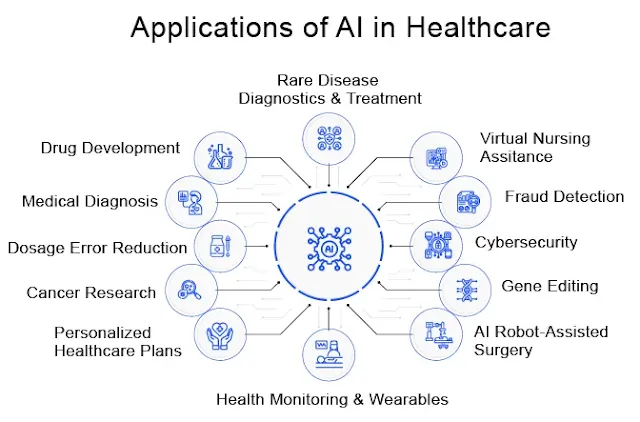In the healthcare industry, ensuring that healthcare professionals have access to up-to-date and accurate medical knowledge is crucial for providing high-quality care. However, the education gap in the health system is a persistent challenge, with healthcare professionals facing difficulties in keeping up with the rapid advancements in medical research and technology. Artificial Intelligence (AI) has the potential to bridge this education gap and revolutionize the healthcare industry by providing innovative solutions to enhance medical education and knowledge dissemination.
Access to Updated Medical Information
Medical knowledge is constantly evolving, making it challenging for healthcare professionals to stay updated with the latest research and guidelines. AI can help overcome this obstacle by providing instant access to updated medical information. AI-powered search engines and databases can quickly retrieve and filter vast amounts of medical literature, delivering the most relevant and recent findings to healthcare professionals. This enables them to make informed decisions and provide the best possible care to their patients.
Virtual Medical Education
Traditional medical education often relies on in-person lectures and demonstrations. However, AI can enhance medical education by providing virtual learning experiences. Virtual reality (VR) and augmented reality (AR) technologies, powered by AI algorithms, can create immersive training environments that simulate real-life medical scenarios. This allows students and healthcare professionals to practice their skills, make critical decisions, and gain hands-on experience in a safe and controlled environment. Virtual medical education can bridge geographical barriers, making high-quality medical education accessible to individuals in remote or underserved areas.
Personalized Learning and Continuing Education
AI-driven platforms can personalize medical education and continuing education programs to meet the specific needs of healthcare professionals. By analyzing individual learning patterns and performance, AI algorithms can tailor the curriculum and learning materials to enhance knowledge acquisition and retention. Personalized learning also allows healthcare professionals to focus on areas where they need improvement, ensuring ongoing professional development.
Diagnostic Support and Clinical Decision-Making
AI-powered diagnostic tools can augment healthcare professionals' abilities by providing accurate and timely diagnostic support. Machine learning algorithms can analyze patients' medical records, symptoms, and test results to generate potential diagnoses or suggest further investigations. This assists healthcare professionals in making informed clinical decisions and improves patient outcomes by reducing diagnostic errors.
Collaborative Learning and Knowledge Sharing
AI can facilitate collaborative learning and knowledge sharing among healthcare professionals. Online platforms powered by AI algorithms enable healthcare professionals across the globe to connect, share experiences, and discuss complex cases. This collaborative approach helps healthcare professionals learn from each other, access diverse perspectives, and collectively advance medical knowledge. AI-based platforms can also automate the sorting and categorizing of shared knowledge, making it easier for healthcare professionals to find relevant information for their specific needs.
Continuous Quality Improvement
AI can play a significant role in continuous quality improvement in healthcare. By analyzing vast amounts of healthcare data, AI algorithms can identify patterns and trends that can inform best practices and quality improvement initiatives. AI-powered data analytics can facilitate evidence-based decision-making, enabling healthcare systems to implement targeted interventions, reduce medical errors, and enhance patient safety. This continuous feedback loop powered by AI ensures that healthcare professionals are constantly learning and improving their practices.
In conclusion, AI has the potential to close the education gap in the health system by providing innovative solutions for medical education, knowledge dissemination, diagnostic support, and continuous quality improvement. By embracing AI in healthcare, healthcare professionals can access up-to-date medical information, engage in personalized learning experiences, collaborate with peers, and make informed clinical decisions. AI-powered advancements enhance healthcare professionals' capabilities and lead to better patient outcomes, ultimately closing the education gap and advancing the healthcare industry as a whole.


Post a Comment
Full Name :
Adress:
Contact :
Comment: